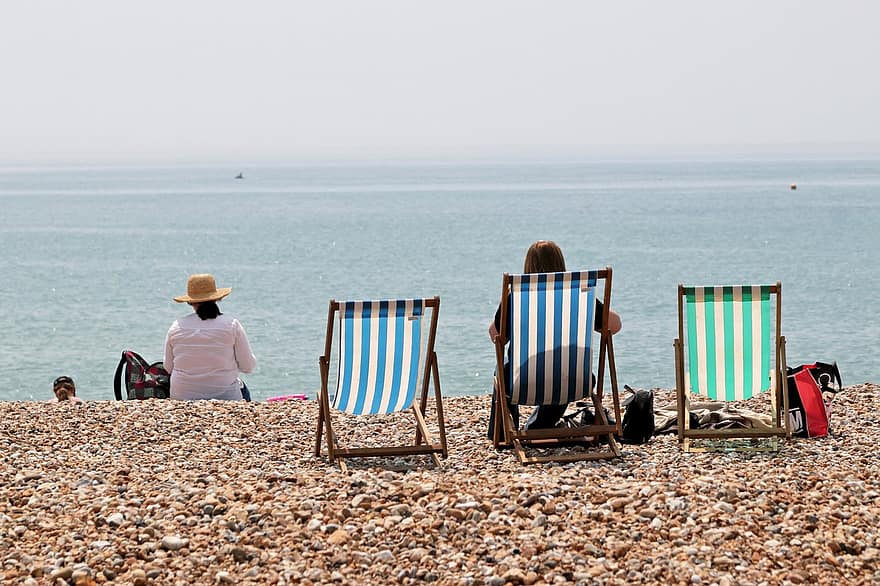40ºC: a temperature that used to be remarkable in France, but is now frequently exceeded

Only half a century ago, a temperature of above 40ºC was something unusual in terms of weather. Today, this level is being exceeded more and more often. It has become one symbol of the climatic change that increases summer temperatures and the related threats.
The 40ºC temperature exceeded almost every year since 2008
According to the Météo France meteorological institute, the increasingly symbolic threshold of 40ºC had only been exceeded once in the 1960s and once in the 1970s. In the following two decades, this still rare temperature became more frequent.
And in a world that is experiencing ever more visible effects of global warming, the 21st century has seen an acceleration.
Since 2008, at least one monitoring station has exceeded 40ºC every year (except in 2014). And the summers of 2019 and 2020 have seen a true blast of 40ºC, with a spread to the north of the country.
READ ALSO – Drought: France had its driest July in 60 years, according to Météo France
A huge acceleration of global warming in France?
Scientists predicted that extreme temperatures would rise faster. But are these intense occurrences two years in a row a sign of a major acceleration of warming in France?
At first glance, the experts reply no, noting that two years are not considered representative.
Models predict that the threshold will be exceeded almost every year. But only “around the middle of the century and rather in the south of France,” says Robert Vautard, director of the Pierre and Simon Laplace Institute for Research in Environmental Sciences.
So 40ºC exceeded like that over two years in a row “may seem surprising, but it’s probably a coincidence,” he said.
A “coincidence” also for his colleague Christophe Cassou. “But it should be seen as a trend, it is becoming more probable,” says the climatologist from the Cerfacs research centre in Toulouse.
These peaks are also part of a whole that shows irrefutably the impact of global warming on France’s summer weather.
The 35ºC threshold is proof of this. “According to data from Météo France on its 30 observation stations, since 2015, the number of times 35ºC has been exceeded each summer is over 100, whereas it only happened an average of 13 times per summer in the 1960s,” Christophe Cassou explains.
READ ALSO – French cereal production figures to drop this year
A temperature of 50ºC at the end of the century?
It is an index “more enlightening than 40ºC because there is more statistical evidence”. And it “shows that hot summers have been recurrent for the last 5 years”, stresses the scientist who is taking part in the drafting of the next report of the UN climate experts (IPCC).
Even without breaking records, a heatwave, with high temperatures at night that do not allow bodies to recover, can have a devastating impact on vulnerable people.
Hence the “heatwave vigilance” (vigilance canicule) created after the deadly episode in 2003 that killed 15,000 people in France. This was intended to warn the population and protect the most fragile, such as the elderly.
Above or below 40ºC, heat waves are also “a threat to some ecosystems, and to agriculture, as heatwaves are generally associated with drought episodes,” explains Christophe Cassou.
Given the forecasts of climate models, the repeated 40ºC that we are still seeing this summer may be only a preview of the decades to come.
“In the most intensive scenarios in terms of warming, towards the end of the century in France, it will be easy to exceed 45ºC or 50ºC. And some simulations go as high as 55ºC,” says Robert Vautard.
“The 50ºC threshold seemed irrelevant until last year,” notes the climatologist. “But we’re already at 46ºC!” – a new French record set in 2019.
On a global level, the highest temperature ever recorded is 56.7ºC. It was on July 10, 1913 in Death Valley in California (USA) according to the World Meteorological Organization.
“You have to adapt the message, it’s not all written,” tempers Christophe Cassou. “This will become the standard if we don’t immediately and consistently reduce greenhouse gases,” he warns.
“And if we forget the if, it’s scaremongering, and it leads to fatalism and immobility.”
Increased risk of fires
“When it’s hotter, the risk of a fire is greater, because it takes less energy to start it,” explains Jean-Baptiste Filippi, a researcher at the University of Corsica.
Air humidity and wind strength are also essential in assessing fire risk. But on the heat side, beyond these spikes, “it’s the duration that is dangerous,” explains the manager of the FireCaster fire prediction program.
“The rescue services, which are very efficient, are on alert to act on all fire starts, but it is much more difficult to be so efficient for 10 days.”
The highest temperature ever recorded in France is 46ºC and was set in 2019.